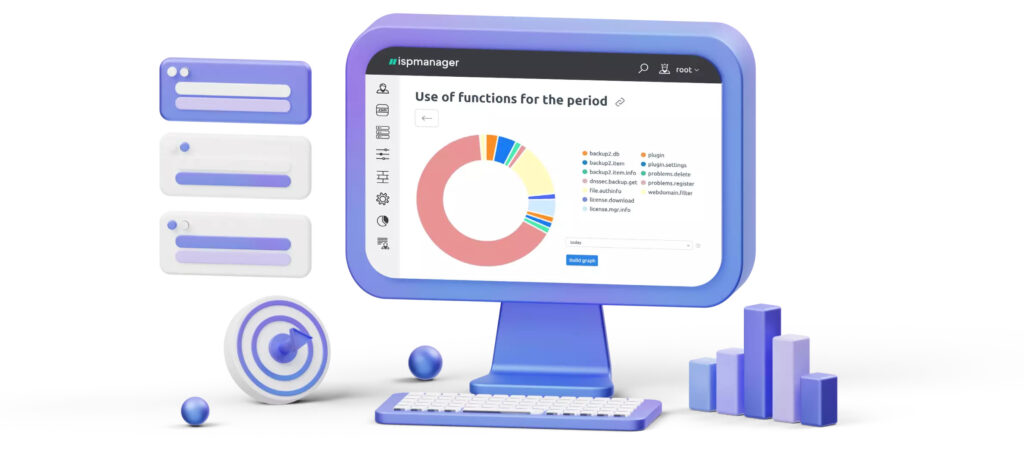
Without a doubt, effective website management is paramount for businesses, organizations, and individuals utilizing the digital space. But where do you begin? Ispmanager, the robust control panel empowering many to take control of their website’s performance, security, and overall success, may be the solution you seek.
This article unveils seven expert tips that will revolutionize your website management or web hosting game using the ispmanager control panel. From navigating the interface like a pro to optimizing performance and implementing robust security measures, we have you covered.
Get ready to transform your online presence with a smart tool to manage and unlock the full potential of your website!
The Seven (7) Expert Tips
Tip 1: Familiarize Yourself with Ispmanager
The control panel provides a comprehensive interface that allows you to administer various aspects of your website. Take some time to explore the tool’s navigation, menus, and options. Familiarize yourself with the layout and understand how each feature works. This initial investment will pay off in the long run as you navigate your website’s management tasks easily and efficiently.
Tip 2: Regularly Update and Maintain Your Website
Keeping your website up-to-date is vital for both security and performance reasons. The control panel simplifies the update and maintenance process, ensuring your website remains secure and functions optimally.
Regularly check for updates to your content management system, plugins, themes, and other components. The control panel provides automatic update options for OS only, and allows you to schedule maintenance tasks. As a result, you can safeguard your website against vulnerabilities and ensure a smooth user experience by staying on top of updates and performing routine maintenance.
Tip 3: Optimize Website Performance
Website speed and responsiveness are vital factors that can significantly impact user satisfaction and search engine rankings. With the control panel, you can access powerful caching and optimization tools. Leverage these flexible features to boost your website’s performance.
Further, enable caching mechanisms, compress files, and optimize images to reduce page load times. Take advantage of ispmanager’s integration with content delivery networks (CDNs) to deliver your website’s content more efficiently. Consequently, you will enhance user experience and improve conversion rates.
Tip 4: Implement Robust Security Measures
Website security should be a top priority, and fortunately, ispmanager offers many security features to protect your website from threats. Ensure you have SSL/TLS certificates installed to encrypt sensitive data and secure communications. Similarly, configure firewall settings to control incoming and outgoing traffic.
Moreover, regularly monitor logs and enable intrusion detection mechanisms to identify and mitigate potential attacks. You will safeguard your website and maintain the trust of your visitors by utilizing the panel’s security features e.g. 2-factor authentication and build-in firewall. For more security, use antivirus or DDoS-protection.
Tip 5: Backup and Restore Your Website
Regular backups are a lifeline in case of data loss, accidental changes, or security breaches. This control panel simplifies the backup and restore process, enabling you to protect your website’s data effectively. Set up automated backup schedules to ensure your website’s files and databases are consistently backed up.
Further, test the restoration process to verify that your backups are functional. Implementing a comprehensive backup strategy using ispmanager will give you peace of mind, knowing that your data is secure and recoverable in the event of an unforeseen incident. One more important point here, that you should backup your website somewhere outside the server. e.g. Google Drive. In case if the server is down you can easily restore information. If you store backups at your ispmanager server and then server dies, you won’t have any backups.
Tip 6: Utilize Additional Ispmanager Features and Integrations
Beyond the core website management functionalities, the control panel offers additional flexible features and integrations to enhance your website’s performance and functionality. You can also integrate the panel with third-party services like analytics platforms, marketing tools, and e-commerce systems to unlock new possibilities and capabilities for your website and stay ahead of the competition.
Additional Tips
Monitor Website Analytics
Thus, set up tracking codes within the panel to gather valuable insights into your website’s traffic, visitor demographics, engagement metrics, and conversion rates to identify areas for improvement, understand user preferences and make informed decisions to enhance your website’s effectiveness.
Utilize Website Backup Testing
Regularly backing up your website is essential, but it is equally important to test your backups periodically. The control panel allows you to perform backup testing to ensure your backup files are intact and can be restored successfully. Testing your backups helps you identify potential issues and gives you confidence in your backup strategy. So, schedule periodic backup tests to verify the integrity of your backups and ensure they are ready to use in emergencies.
Stay Updated with Ispmanager Resources and Community
It is beneficial to stay updated with the latest resources and engage with the community to maximize the control panel. The panel provides documentation, tutorials, and knowledge bases to help you understand its flexible features and functionalities better. Stay informed about new releases, updates, and tips by following the panel’s official website, blog, and social media channels. Further, participate in online forums, user groups, and communities to connect with other users, share experiences, and learn from their insights.
Final Words
Effectively managing your website is essential for achieving online success, and ispmanager is a robust control panel that can help you achieve that goal. We encourage you to follow the expert tips outlined in this article to harness the control panel’s full potential and optimize your website’s performance, security, and overall management.
What you should do is simple: familiarize yourself with the tool and its flexible features, regularly update and maintain your website, optimize its performance, implement robust security measures, backup your data, manage domain names and email accounts efficiently, and explore additional features and integrations. With the ispmanager control panel as your ally, you will have the tools and knowledge to propel your online presence to new heights. Watch your website thrive!